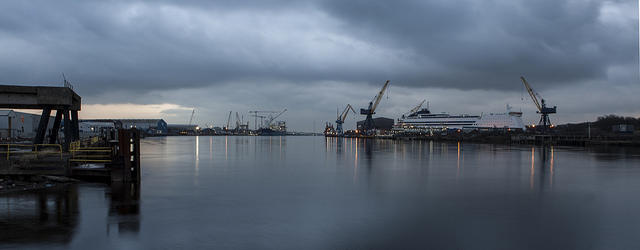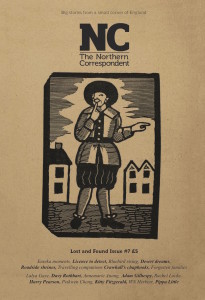What responsibility do novelists and TV drama writers have when depicting our region in their stories? We asked Vera creator Ann Cleeves
Last weekend I was in New York to do a bookshop event and to catch up with my US publisher. Apart from my editor, I only chatted to two local people; one was a retired fire fighter I bumped into outside a church in Gramercy Park. He told me that he’d made enough in overtime payments after 9/11 to retire early. He’d lost friends in the attack and couldn’t settle to the job afterwards. Now he spent much of his time watching crime dramas on PBS.
I said nothing. “That Vera,” he said. “I really love her!” Pause. “That is one beautiful show.” The second was the concierge in my hotel. He saw the address label on my bag. “Hey, isn’t that where they film Vera?” This time I couldn’t resist and told him that I’d written the books on which the series was based. He raved about the scenery and said if he ever came to the UK he definitely wanted to visit the north east.
Of course this was the biggest ego trip ever, but it made me think about the way people’s perceptions of the region have shifted since we first moved to south east Northumberland in the mid-eighties. Then the impression given in popular drama was of an area covered in terraced houses and giant slag heaps. It looked back to an industrialised past that probably never really existed – think Catherine Cookson, When the Boat Comes in and The Likely Lads. There were still a few working pits when we moved north and the Swan Hunter shipyard employed thousands of men, but it was a time of transition.

Swan Hunter. Photograph by Karl Pijnen under Creative Commons licence
Heavy industry had already declined. Our southern friends wondered why on earth we would want to live somewhere so deprived, so ugly. Some of them knew about the wonders of Hadrian’s Wall and Holy Island, but didn’t seem to relate those places to collieries and cranes on the Tyne.
In fact, we all know that the area is more mixed: there are beautiful beaches in Tyneside as well as in North Northumberland and the pools in the nature reserves inland from Druridge Bay were caused by subsidence after mining. The uplands of Teesdale are stunning, and yet the Tees itself looks like an industrial wasteland from the A19.
I tell stories and I try to be as truthful about the background to the stories as possible, but that doesn’t have to be a literal truth. Sometimes it’s about capturing an atmosphere or a sense of the place and that might involve making things up. I feel free to use real towns and villages and then to create a quite fictitious place alongside them. Other writers do things differently – I know Ian Rankin is meticulous about the geography of his novels, for example.
But I’m relaxed about how the TV directors interpret my books – film is a very different form. The new executive producer for Vera is from Seaton Delaval and I think his perception of the region is very similar to mine. It’ll be interesting to see if the audience notices any difference in tone when series seven of Vera airs.
It’s the variety of landscapes and communities within our area that makes it a joy to write about and to film. It provides a palette of backgrounds, settings and visual treats. The wind turbines and the terraced streets between the river and the sea in North Blyth are as pleasing as Dunstanburgh Castle seen from Craster. And the people are just as varied.
In my Tyneside local, I sit next to someone who fishes from a small boat in Cullercoats, a former joiner in the shipyard, a teacher and a union worker. They all have stories to tell. Readers often ask where writers get their ideas from. I get mine from the region where I live.
Ann Cleeves is author of the Vera and Shetland novels, which have been adapted for television. You can follow her on Twitter and see her next week at the launch of crime fiction festival Newcastle Noir which will also feature Val McDermid, Sophie Hannah, Mari Hannah, Yrsa Sigurdardottir and Gunnar Staalesen.
Ann’s most recent novel, The Moth Catcher, is published by Pan and available at local, independent bookstores such as Forum.
Tell us your views in the comments section below – by clicking on the little speech bubble.
(Views expressed on our website and in our magazines and emails are not necessarily endorsed by The Northern Correspondent.)
Subscribe to our weekly email:
Buy our latest magazine:

